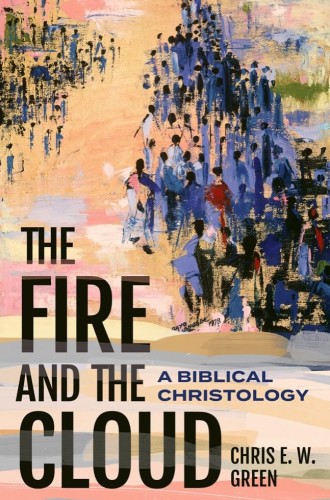Christology without supersessionism
Chris Green invites Christians to a humbler reading of scripture—one that listens, learns, and refuses to displace Israel’s voice.

The Fire and the Cloud
A Biblical Christology
In his latest book, theologian Chris Green addresses an issue that is long overdue: the articulation of a non-supersessionist Christology. The author, who teaches at Southeastern University, calls supersessionism “a particularly damaging doctrine.” Indeed, he even identifies supersessionism as a heresy, because Christians’ forgetfulness of Israel’s primacy in God’s purpose is at the very root of virtually all predicaments in church history. He states that “supersessionism has been a flaw in the design of Christian theology” and that “doing theology is always an act of repentance.”
Much is at stake in articulating a non-supersessionist Christology. Rosemary Ruether famously—or, according to numerous Christians, infamously—asserted that “anti-Judaism developed as the left hand of Christology.” From early on, Christians believed that confessing Jesus as Christ necessarily entails a repudiation of Jewish interpretations of the scriptures, a notion largely carried on through 2,000 years of Christology. In contrast, Green believes that a non-supersessionist Christology—one that avoids simplistic dichotomies between true and false scriptural readings—is possible. He solemnly asserts that he has “no designs on convincing Jews that they have been wrong about Jesus all along” and, using Herbert Basser’s horticultural image, states that he wants to refrain from “plant[ing] Christian trees in Jewish soil.”
Green’s book is spiced with numerous quotations. The first two are by Abraham Joshua Heschel and Dorothee Sölle, who emphasize that a Christianity without the Hebrew Bible loses its authenticity, resulting in Jesus becoming a sentimental figure. For this reason, Green is eager both to root Christology in the Hebrew Bible and to avoid supersessionist readings. He is in constant dialogue with biblical texts, church fathers (e.g., Augustine, Ephrem the Syrian, and Origen), and contemporary writers (e.g., Robert Alter, Walter Brueggemann, Robert Jenson, R. Kendall Soulen, Michael Wyschogrod, Yair Zakovitch, and Avivah Gottlieb Zornberg). Green moves with ease and joy in the landscape of Jewish and Christian writers, discerning new and thought-provoking readings while also issuing warnings about old and prejudiced interpretations.





